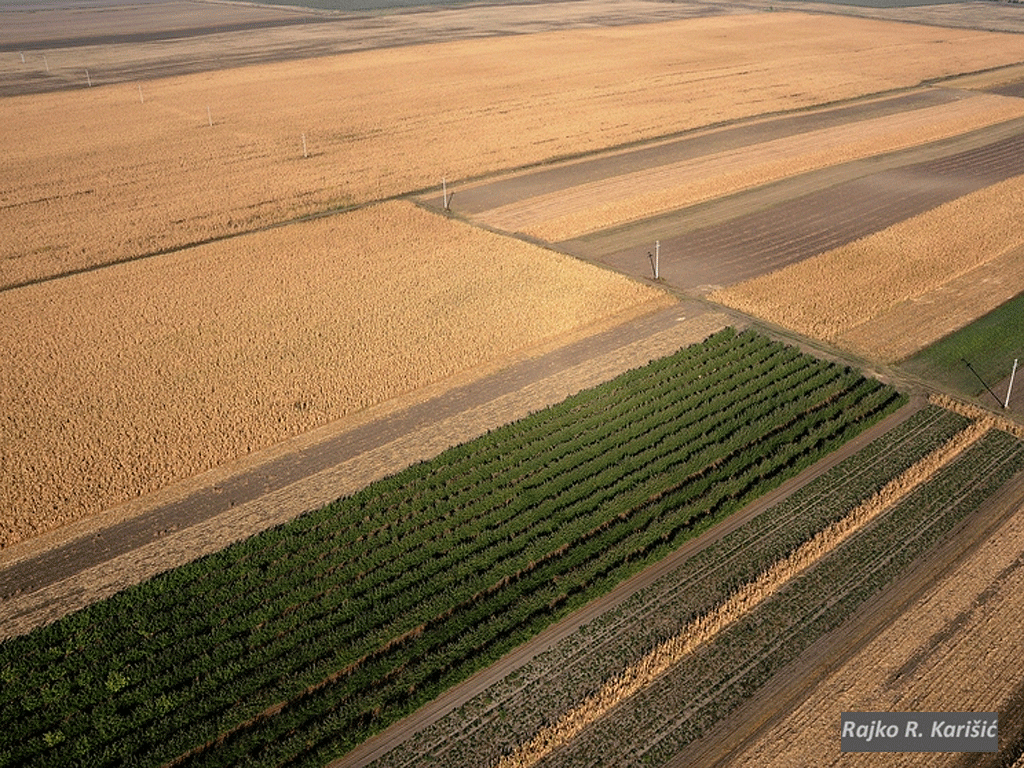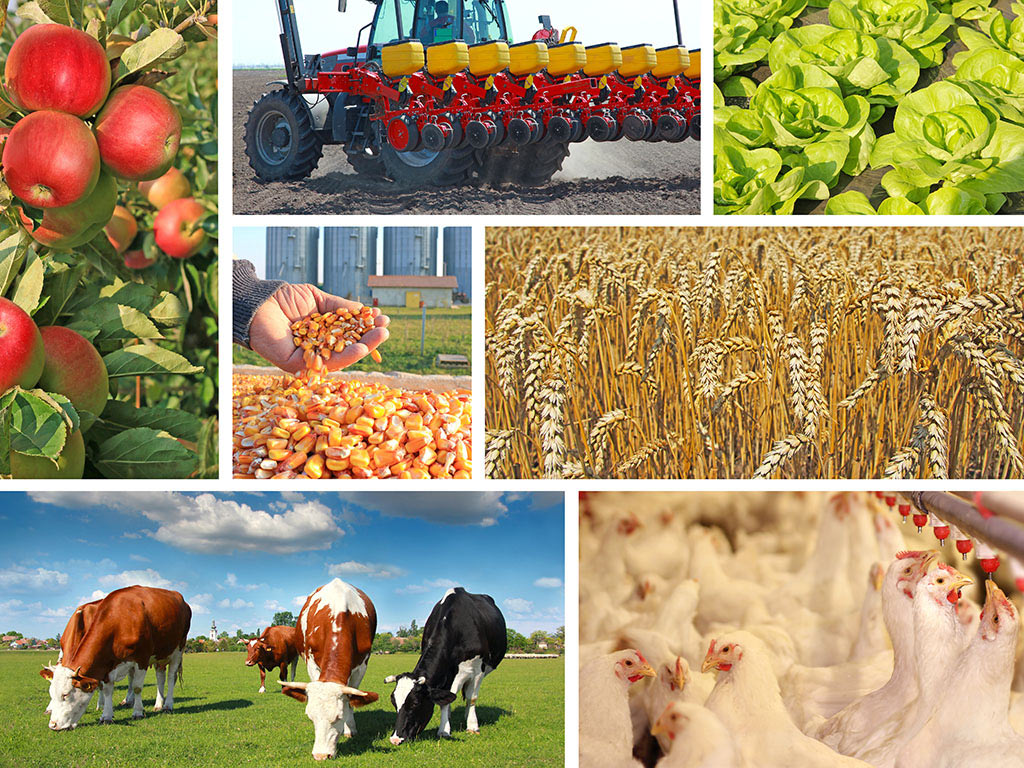State to Subsidise Farmers with RSD 800 million in Loans - A Good though Somewhat Belated Decision by the Ministry of Agriculture
 Monday, 09.05.2016.
Monday, 09.05.2016.
 12:29
12:29
On 8 April 2016, the Ministry of Agriculture and Environmental Protection and the Treasury signed with ten banks contracts enabling farmers to obtain loans at a three percent interest rate. The rate is lower than last year, while a one-year grace period was also provided, the state`s aim being to boost investment in the agriculture sector.
The Ministry has earmarked RSD 800 million to co-finance farm loan rates, with Komercijalna, ProCredit, Credit Agricole, Hypo-Alpe Adria, Banca Intesa, Sberbank, AIK, NLB, Unicredit and OTP banks signing the contracts to this end.
The funds will be used in part to subsidise 40 percent of insurance premiums for crops and farm animals. Last year, 4,800 loans worth RSD 4.8 billion were approved under the programme.
"The signed contracts will enable farmers to apply for loans at the currently most favourable interest rate of three percent, while the Ministry of Agriculture will reimburse the banks for the interest-related difference," Minister Snezana Bogosavljevic Boskovic said.
According to her, the Ministry signed contracts on agriculture loans granted to farmers at subsidised interest rates also last year, which she said had resulted in investments in agriculture worth some RSD 6 billion. She stressed that she expected farmers to use the loans to purchase farm animals and equipment as well as for all forms of agricultural production.
Bankers already in Fields
Bank officials say they are ready, saying that farmers can count on the loans already as of May.

The loans are intended for natural persons, cooperatives and micro- and small enterprises with registered farms. Maximum loans granted to cooperatives amount to RSD 15 million, whereas other users can get loans of up to RSD five million.
"The loans are approved for fixed and current assets, investments in agricultural machinery and equipment for the promotion of crop farming, vegetable and flower growing, fruit and wine growing and cattle breeding, while as of this year they can also be used to buy fodder," Vukovic said.
Farmers Reluctant to Obtain Loans
Miladin Sevarlic, professor at the Belgrade University School of Agriculture and an agroeconomist, believes that the co-funding of bank loan interest rates by the Ministry is good for farmers as a measure, saying however that in this case, it is not certain whether it will ba applied in time due to the delayed farm registration process.
"In May, the sowing was for the largest part completed and most of the spring work, financially most challenging on farmers, is over." In future, when the farm registration deadline changes, the measure should be available already at the start of the year, enabling farmers to get seed and other raw materials with these loans in time and without borrowing funds at an unfavourable par from different selling/buying points," Professor Sevarlic told eKapija.
Sevarlic also said that, this year`s agricultural policy measures lacked funds to co-finance the purchase of tractors, which he said would also reflect on their sale at the coming Novi Sad International Agricultural Fair because EU IPARD funds were not yet available to Serbian farmers, not even three years after being made available."

Radosav Grujicic of the village of Pambukovica near Ub, involved in organic food production since 2010, shares this view. Speaking for eKapija, Grujicic said that he had used bank farm loans from time to time precisely for current production, but the terms were unfavourable, with high interest rates. Initially, the Ministry offered considerable financial support, encouraging organic food production with subsidies. Grujicic said however that the sale of goods in markets and finding buyers was more important than the loans themselves.
Last year, the producer from Ub won the NLB Organic Competition in the best idea in organic food production and processing category, investing the funds awarded in a modern curing shed, supplied with energy via solar panels.
Cooperative Movement Revival
Professor Sevarlic believes that Serbia evidently lacks cooperatives to provide machinery-related services in agriculture and perform other tasks in the joint purchase of raw materials and the marketing of farmers` market surplus.
"I consider this to be the main weakness of our agricultural policy and the state`s attitude to the so-called third economy sector, agriculture in particular. In my opinion, the solution is to revive the cooperative movement, because small farms cannot be sustained, as well as to develop state-cooperative partnership to build between 20 and 30 points for the buying, finishing, processing and marketing of produce and foodstuffs under the Food of Serbia single brand. It is a minimum needed to balance the position of oversubsidised foreign investors and disparaged farmers in Serbia," Sevarlic concluded, stressing that another solution, which he said was a prerequisite of farming revival, was a demographic revival of rural areas.
In addition to the loans granted under the Serbian government`s programme, most of the banks` standard offers include different farm loans for fixed and current assets, the purchase of machinery and farming land, energy efficiency as well as investments. Still, the terms are in these cases far less favourable for loan users, so that farmers are mainly firm in their stand that they should to go to a bank only once they have exhausted all other options.
M.A.
 Ministarstvo poljoprivrede, šumarstva i vodoprivrede Republike Srbije
Ministarstvo poljoprivrede, šumarstva i vodoprivrede Republike Srbije
 Ministarstvo finansija Republike Srbije
Ministarstvo finansija Republike Srbije
 Uprava za trezor Republike Srbije
Uprava za trezor Republike Srbije
 NLB Komercijalna banka AD Beograd
NLB Komercijalna banka AD Beograd
 ProCredit Bank a.d. Beograd
ProCredit Bank a.d. Beograd
 RBA banka a.d. Novi Sad
RBA banka a.d. Novi Sad
 Addiko bank ad Beograd
Addiko bank ad Beograd
 Banca Intesa a.d. Beograd
Banca Intesa a.d. Beograd
 Naša AIK Banka a.d. Beograd
Naša AIK Banka a.d. Beograd
 AIK Banka a.d. Beograd
AIK Banka a.d. Beograd
 NLB Banka a.d. Beograd
NLB Banka a.d. Beograd
 UniCredit Bank Srbija a.d. Beograd
UniCredit Bank Srbija a.d. Beograd
 OTP banka Srbija a.d. Novi Sad
OTP banka Srbija a.d. Novi Sad
 Poljoprivredni fakultet Beograd
Poljoprivredni fakultet Beograd


 Izdanje Srbija
Izdanje Srbija Serbische Ausgabe
Serbische Ausgabe Izdanje BiH
Izdanje BiH Izdanje Crna Gora
Izdanje Crna Gora


 News
News






